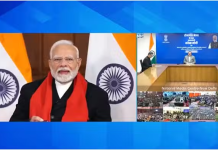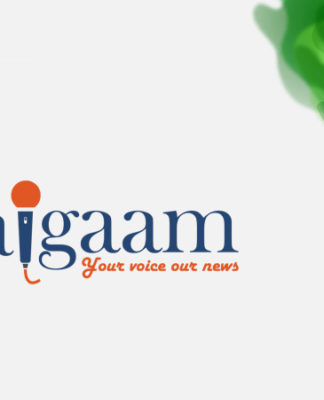New Delhi: The government might have been vocal about tackling corruption, but in the past one year, 56% citizens paid bribes either directly or indirectly, according to a survey conducted by Transparency International India and Local Circles. The survey, which had over 1,60,000 responses, comes at a time when India’s ranking in the Corruption Perception Index 2017 slid down from 79th to 81st position.
The number is a sharp increase from results from last year’s survey where the number stood at 45%. As per the survey, 58% of the citizens said their states had no anti-corruption helpline, whereas as many as 33% said they were not aware of the presence of such helpline in their states.
The survey also concludes that most of the bribes were paid in cash (39%), followed by bribes through agents (25%) and bribes in kind (1%). Most bribes were paid to police officials, to the tune of 25%, followed by municipal corporations, property registrations and other authorities (electricity board, transport office, tax office etc).
In 2017, 30% paid bribes to police, 27% to municipality and 27% for property registration. This year, 25% paid bribes to police, 18% to municipality and 30% for property registration.
The survey also shows that 36% of respondents this year and last year said giving bribes was the only way to get their work done. The percentage of citizens who said they did not have to pay a bribe to get their work done also reduced from last year’s 43% to 39% this year.
Interestingly, 13% of those who took the survey said that they paid a bribe to government offices which had CCTVs. The survey also shows that about 63% feel that the new amended law will increase the victimisation of people by the public officials since the law was bound to become a tool for harassment in the hands of the officials.
As many as 49% of the citizens said the need for a prior approval of an authority before a public official can be investigated, will lead to increase in bribery and corruption as it will make it all the more difficult to prosecute the corrupt officials quickly.
The Prevention of Corruption (Amendment) Bill, that amends certain provisions of a 30-year-old anti-corruption law, was passed by the Upper House unanimously with voice vote.
For the bribe takers, the bill proposes to increase the punishment to a minimum of three years of imprisonment, which may extend to seven years, besides fine. The bribe givers shall be punished up to seven years of imprisonment or with fine or both, according to the bill. Bribe givers are not covered in any of the domestic legislations to check corruption. Instances of corruption and provisions to punish the guilty are provided in the Prevention of Corruption Act, 1988. However, to protect persons who give bribe under coercion, the bill has provided that “the person so compelled” would have to report the matter to the law enforcement authority or investigative agency within seven days.(AGENCIES)








































